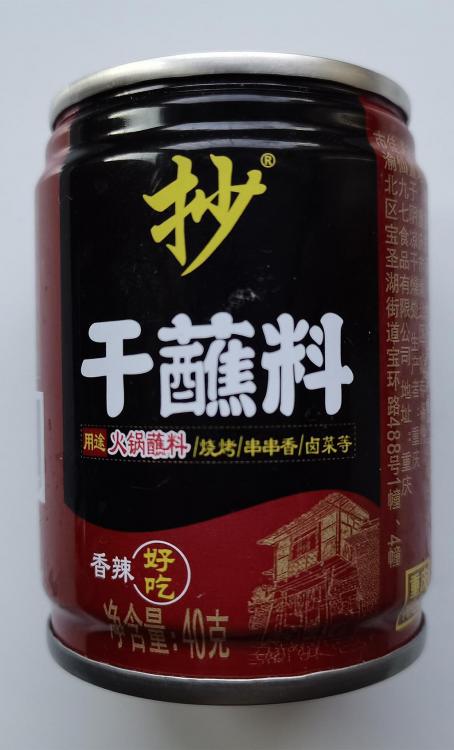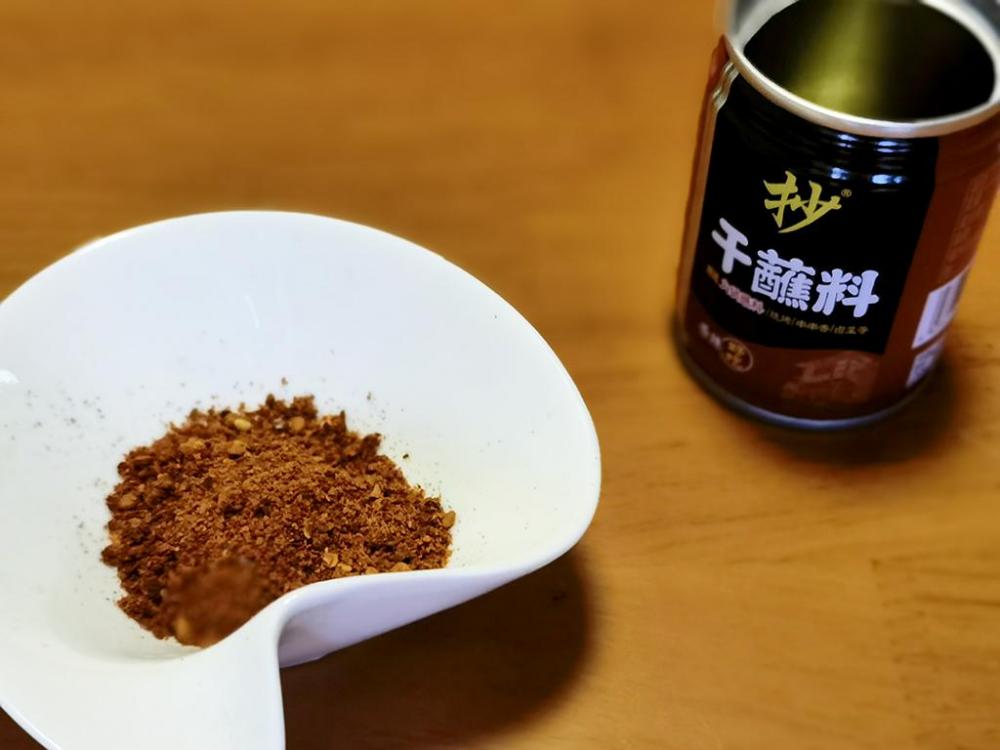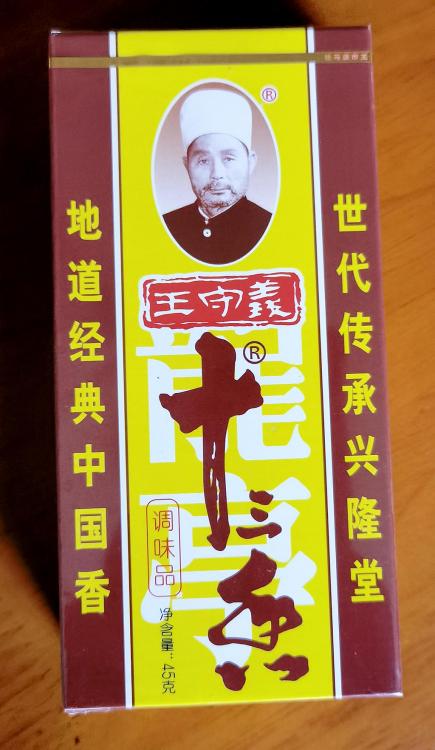33. 香料 (xiāng liào) – Spice Mixes
I’m guessing that everyone knows five-spice powder. I have no intention of talking much about that here other than to point out again that it is used far more often in the west than it actually is in China!
There are literally hundreds of different mixes, many of which are more interesting than boring old 5-spice. And 5-spice is about to be outbid below.
There is no way I’m going to cover 100s of mixes but I will start with two I think may be interesting.
1. 干蘸粉 (gān zhàn fěn) – Dry Dip Powder.
China has many dips and they are normally offered with every meal, Most are liquid, being based on soy sauce, oils and vinegars flavoured with spices. But there are also dry dips, which are usually served with meats.
My favourite is this one which comes in this small can containing 40 grams / 1.4 ounces. It contains sand ginger, cassia, star anise, fennel, sugar, Sichuan peppercorn, chilli, salt, cumin; all of which I’ve mentioned above, except sugar*. It is fragrant and spicy hot.
2. 十三香 (shí sān xiāng) – 13 Spices
香 (xiāng) is an interesting but multi-purpose word in Chinese and difficult to translate. It can mean fragrant; sweet-smelling; aromatic; with relish; with good appetite; (sleep) soundly; popular; welcome; perfume or spice; incense; joss stick. Take your pick. Then when combined with other characters, dozens more meanings. Cilantro / coriander, for example is 香菜 (xiāng cài, literally ‘xiang vegetable’).
This popular mix is actually often easier to find here than 5-spice.
It contains sand kernels, cloves, angelica, star anise, fennel, pepper, galangal, orange peel, black pepper, nutmeg, cinnamon, dried ginger, hawthorn, and licorice. Most of which I’ve covered. Will get round to the others soon.
It is used in much the same way as 5-spice. Rubs, marinades, hot pots, stir-fries etc. Available in the USA and UK via Amazon and in many Asian markets.
* Sugar in China - a topic from 2016.







